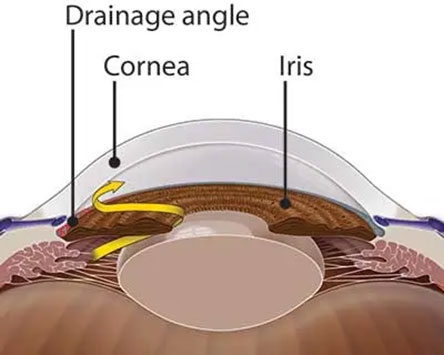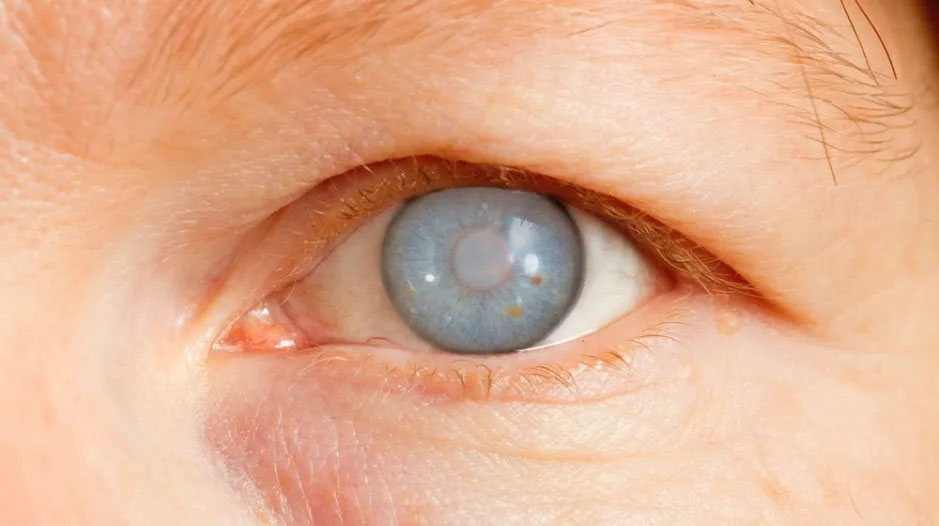It is the first and only lens that can be customized after cataract surgery. Click here to learn more
Click here to learn more.
Glaucoma is an eye condition with increased pressure in the inner eye (intraocular pressure, IOP) due to excess fluid buildup that ultimately causes damage to the optic nerve. Glaucoma is one of the leading causes of blindness. It is considered the “silent thief of vision” as it slowly and progressively damages your sight.

Your eye constantly makes aqueous humor. As new aqueous flows into your eye, the same amount should drain out. The fluid drains out through an area called the drainage angle. This process keeps pressure in the eye (called intraocular pressure or IOP) stable. But if the drainage angle is not working properly, fluid builds up. Pressure inside the eye rises, damaging the optic nerve.

If the drainage angle is blocked, fluid cannot flow out of the eye, causing pressure to increase.

There are two types of Glaucoma.
There are generally no noticeable symptoms in the early stages of open-angle glaucoma. As the disease progresses, patients develop blind spots in their peripheral (side) vision, and eventually, their central vision is also compromised.
People who develop angle-closure glaucoma have no symptoms either but are struck by an attack of blurred vision with halos, possible headaches or eye pain, nausea, and vomiting.
Risk factors for developing glaucoma include race, age, elevated IOP, female gender, nearsightedness, and hereditary.
Request an appointmentThe best way to diagnose glaucoma is to get an annual comprehensive eye exam. Your eye doctor will measure your eye pressure, examine your optic nerve, test your central and peripheral vision, and more to detect changes in your eyes or sight that might indicate early-stage glaucoma.
Unfortunately, there is no cure for glaucoma. However, medication or surgery can slow its progression and help prevent further vision loss.
The proper treatment will depend on the type of glaucoma, progression, and other factors. It may include eye drops, medication, laser surgery, incisional surgery, and other minimally invasive glaucoma surgeries (MIGS): such as Cypass and Kahook blade procedures. Surgery is done to create a new drainage system for the eye to allow the eye pressure fluid to release.
SLT is advanced laser surgery to manage patients with open-angle glaucoma. This laser eye treatment selectively stimulates or changes only specific pigmented cells to activate increased fluid drainage and may reduce the need for lifelong use of eye drops and other medications.